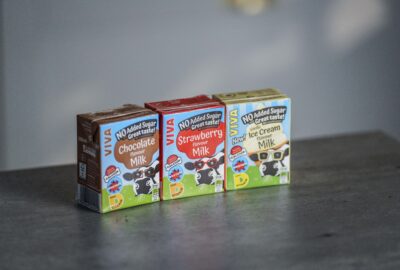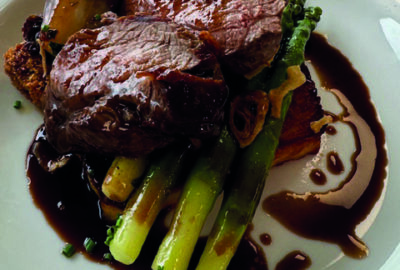Whether vegan, vegetarian or flexitarian, plant-based diets are here to stay. Not only have the number of vegans quadrupled between 2014-2019, but this consumer group is set to make up 25% of the population by 2025. In addition, research has recently indicated that a staggering 93%1 of plant-based meals are currently eaten by non-vegans, obliterating all assumptions that only vegans eat plant-based food. This single statistic instantly opens minds to the huge opportunity adding plant-based food to the menu presents to caterers.
To encourage more businesses to capitalise on this fast-growing consumer group, we asked brands and caterers to give us the benefit of their experience and tell us how they have successfully adopted ‘the power of plant-based’ to their menus and marketing activities.
Pull out:
Plant-based (of food or a diet) consisting largely or solely of vegetables, grains, pulses, or other foods derived from plants, rather than animal products.
Getting Started
For caterers not offering any plant-based options, introducing them can be quite daunting. A good place to start is to add plant-based milk alternatives to your hot beverage menu. “We carry a range of plant-based milks for our hot drinks, offering customers the choice of oat, almond, soy or coconut” says Loui Blake from Eat by Chloe. Hoteliers, hospitals, care homes or cafés with morning menus can effortlessly add milk alternatives for breakfast items such as cereal.
Developing dishes that are familiar and recognisable, using non-dairy or meat free products as direct substitutions in recipes is perhaps the most natural progression to developing a plant-based menu. “You can swap butter for olive oil in many dishes such as garlic mushrooms and plant-based milks and cheeses in classic dishes such as mac ‘n’ cheese and mashed potato. We recommend taking a look at your existing menu to see what easy swaps can be made.” suggests Maryanne Hall from Viva!’s Vegan Recipe Club. For businesses who operate a separate menu for breakfast, lunch and dinner, try to add something to every menu so you don’t alienate customers at particular times in the day.
Developing Recipes
Inspiration for new plant-based dishes can be found in similar ways to meat dishes. Travel, nostalgia, seasonal produce and experiential dining events are often used as starting points, but when developing vegan menus, try to canvas your vegan customers or suppliers for ideas and find out which dishes are popular and equally, what is unpopular. Understanding your
audience will go a long way to developing a successful new menu.
“Prior to the current travel restrictions that we find ourselves in, the best way to be inspired for new products is through travel. Visiting local street food vendors and experiencing global vegan cuisine, bringing it back for consumers.” says Satvinder Bains, Director of Shicken, which produces plant-based alternatives to chicken. While the lockdowns have been incredibly frustrating and worrying, they have also been a time of exploration for chefs, with plenty of recipe development and fresh ideas flowing from kitchens to entice diners upon reopening and lift spirits for those in the care and education sectors.
As we start 2021, the focus is still firmly on health, so championing plant-based foods will be easier than ever before. Helping consumers make positive choices to improve their wellbeing by gently guiding them to healthy, plant-based meals, celebrating plant power with delicious dishes will be key to success, but be sure to provide a balanced menu which doesn’t solely rely on allergens such as soy or nuts.
For contract caterers and schools, think about where you place your plant-based option on the hotplate. Positioning plant-based dishes at the front so they are easy to access will increase consumption. This helps to reduce catering costs because they are less expensive to produce and has the additional benefit of delivering a healthy dose of vegetables in
one meal.
Marketing Your Menu
When you have developed your plant-based menu options, should you shout about it, or take a more subtle approach, and what do your customers need or want to know? These are just a few questions that caterers ask when introducing vegan dishes to their menus. The truth is, caterers take many different approaches depending on their ethos, but as with anything new – communication is key.
“When it comes to marketing vegan dishes, photography is everything. As the saying goes – a picture says a thousand words – and that couldn’t be truer in the social media world we now live in. We recommend hiring a professional food photographer to help launch your new menu. If this isn’t within your budget, you would be amazed how far your smartphone camera and some good lighting can go.” recommends Maryanne Hall at Viva!’s Vegan Recipe Club.
Make sure your dishes sound as tempting and delicious as any other item on the menu, but, be clear about the allergens and ingredients in each dish because for some diners, a vegan diet is a necessity due to allergies. Terminology can also be a minefield, while the European Parliament has recently rejected a proposal to ban words such as ‘sausage’ and ‘burger’ when describing vegan dishes, they have voted to ban indirect references to dairy products, so descriptors such as ‘yoghurt-style’ or ‘cream imitation’ will not be allowed.
Try to ensure you adopt plant-based dishes into your menu rather than create a separate menu, this will make them accessible to all diners and increase the number of orders. “When I market a plant-based meal, I concentrate mainly on flavour, ease
to make and emotion. The reason for this is to help vegan meals become more accessible to the masses. If I can give people an easy swap that only impacts their life in a positive way, then it removes the barriers.” advises Brett Colby, Chef & Author of What Vegans Eat.
Box out:
Product Picks
From cheese substitutes to vegan tea, we reveal some of the best plant-based products available to all caterers:
• KaterVeg! From Central Foods features a wide range of gluten-free, vegan options including Indian snacks, quarter
pounders, sausages, mince and meatballs. They also have a number of vegan-friendly desserts and have just launched a beetroot and thyme tarte tatin – ideal for lunch or a main course.
• The Vegan Cocktail Selection by Tipiak is an assortment of finger food including carrot, lemon and ginger mousseline tarts, sesame hummus and courgette tagliatelle on courgette and pine nut shortbread as well as sun-dried cherry tomato and olive
tapenade on curry polenta. Eye-catching and tasty, they are sure to be a hit on social media.
• If you are looking to introduce vegan Italian dishes, try the Dolmio Professional foodservice sauce range by Mars Food. With 13 vegan sauces which can be stored in the fridge for 30 days once opened, caterers can create a variety of plant-based meals such as pasta bakes, ratatouille and pizza from a single jar.
• Good Earth’s portfolio of vegan tea-based drinks are grabbing the attention of younger, health aware and planet savvy drinkers. The range includes 8 variants of biodegradable tea bags, 4 loose teas and 3 organic bubbly Kombucha. The Kombucha trend is one to keep an eye on, the UK consumer market for this product currently stands at £16m and is expected to grow by 43% to 2024 (Euromonitor 2019-2024).
• Plant based Tortillas and Tortilla Chips are great vegan options and Mission Foods have developed both plain, bar-marked and flavoured tortillas to spice up Mexican dishes. Their range includes beetroot and chia, tomato and chili and spinach
wheat flour, all designed to enhance dishes with subtle flavour and vibrant colour.
• For customers with a sweet tooth, premium chocolate producer Callebaut offers 811 Callets, enabling caterers to create
indulgent vegan desserts, bakes and (for the chocoholics), breakfast. The team have also launched a recipe book to inspire caterers and demonstrate the breadth of recipes achievable – indulge your customers with the breakfast pancake stack, chocolate chia pots or their chocolate and orange cake!
Pull out:
DON’T FORGET THE DESSERT!
With more than two fifths of consumers purchasing a dessert, cake or pastry when eating out4 maximise sales opportunities by adding vegan desserts and cakes to your menu
Pull out:
93%3 of plant-based meals are eaten by non-vegans
Pull out:
In 2020, 400,000 people took part in Veganuary worldwide and this year the numbers are set to increase thanks to a wave of young millennials turning to veganism as a result of the coronavirus pandemic. In fact, COVID-19 has been such a driving force, that according to the latest Mintel report, 25%2 of people aged 21-30 felt that the pandemic has made a vegan diet more appealing.
Taking Care
Vegetarian for Life is a UK charity aimed at improving the quality of life of older vegetarians and vegans. They have recently launched a brand new guide and British Dietetic Association (BDA) accredited online training course to help those who cater for vegan and vegetarian service users.
The training topics include what vegans and vegetarians eat, plant-based nutrition and fortification, meal planning, and how to cook with alternatives to meat and dairy. Each module includes easy-to-follow recipe videos with some fantastic, tasty recipes for caterers to introduce to your menus.
The guide itself is available as a PDF download via the website, hard copies can also be purchased. The guide contains answers to frequently asked questions such as how to stimulate appetite or boost nutrient intake, and good sources of protein for those on texture modified diets.
Find out more information at vegetarianforlife.org.uk
Schooled
The UK Food Plan is working with schools to get more vegetarian and vegan options into their canteens. Award winning school chefs, Tony Mulgrew and Lyndon Mcleod have helped to develop a recipe pack by school chefs for school chefs. The pack is full of budgeted, nutritious, student-approved, vegetarian and vegan recipes including the dishes below;
– Chick’n and leek pie
– Spicy carrot balls with sweet
and sour sauce
– Sweet potato thai stew
– Vegan suet puddings
– Spicy bean tacos with coconut
yoghurt and salsa
– Butternut squash and sweet
potato korma
Caterers can download the packs free at: www.ukfoodplan.org
References:
1 Kantar Worldpanel
2 Mintel Blog – COVID19
3 Kantar Worldpanel
4 Callebaut Dessert Report, CGA, 2020


